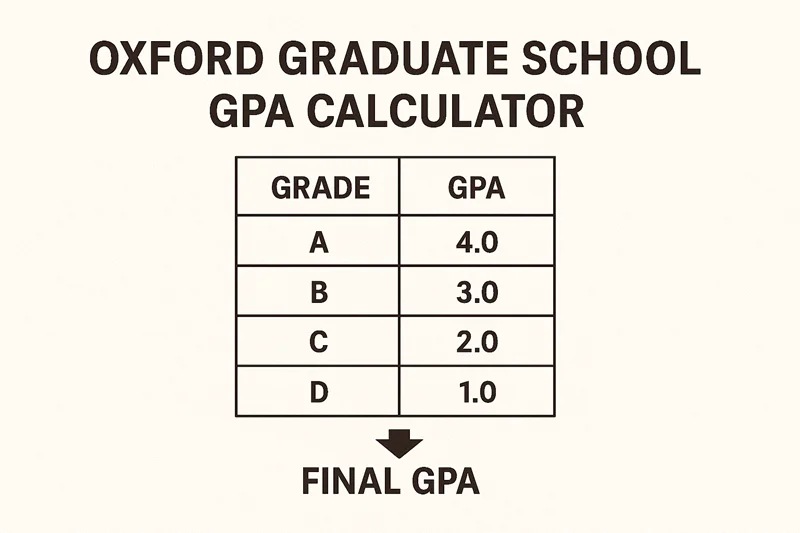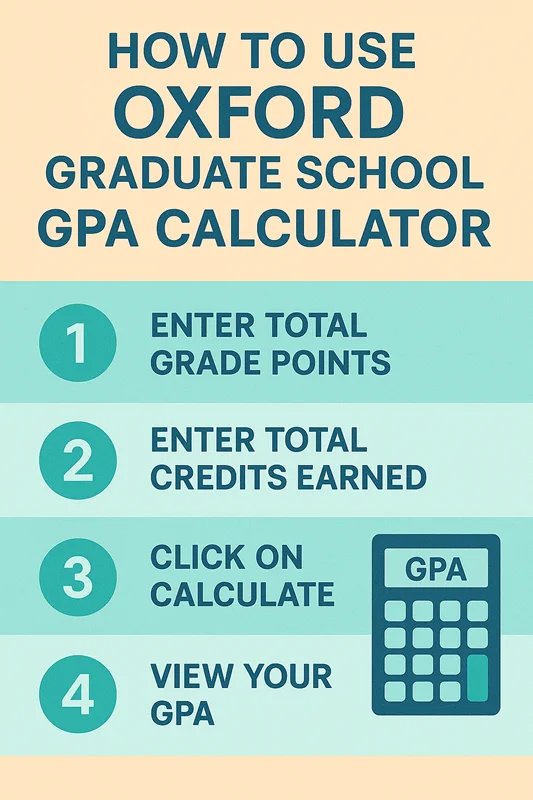Applying to Oxford University as an international student can feel daunting, especially when trying to understand how your academic credentials translate to the UK system. Your Grade Point Average (GPA) plays a crucial role in Oxford graduate admissions, but converting it to the UK grading scale requires careful consideration of different academic standards and requirements.
The UK grading system differs significantly from the US 4.0 GPA scale, using degree classifications like First Class Honours and Upper Second Class (2:1) instead of numerical averages. Understanding these differences and accurately converting your GPA is essential for determining your competitiveness for Oxford’s highly selective graduate programs.
This comprehensive guide will walk you through everything you need to know about GPA conversion for Oxford admissions, including specific requirements by program, step-by-step conversion methods, and practical tools to help you calculate your equivalent UK grade classification.
Understanding the UK and Oxford Grading System
The UK higher education system uses degree classifications rather than GPAs to evaluate academic performance. These classifications provide a standardized way to assess undergraduate and postgraduate achievements across different institutions.
UK Degree Classifications
The UK undergraduate degree system typically follows these classifications:
Classification | Percentage Range | Description |
First Class Honours (1st) | 70% and above | Exceptional academic achievement |
Upper Second Class Honours (2:1) | 60-69% | Good academic performance |
Lower Second Class Honours (2:2) | 50-59% | Satisfactory academic performance |
Third Class Honours (3rd) | 40-49% | Minimum passing grade |
Ordinary Degree/Pass | 35-39% | Basic passing requirement |
Fail | Below 35% | Insufficient academic performance |
For postgraduate degrees, the system is slightly different:
Classification | Percentage Range | Description |
Distinction | 70% and above | Outstanding performance |
Merit | 60-69% | Good performance |
Pass | 50-59% | Satisfactory completion |
Fail | Below 50% | Insufficient performance |
Understanding these classifications is crucial because Oxford evaluates international applications by converting foreign qualifications to their UK equivalents.
Oxford GPA Requirements by Program
Oxford University maintains high academic standards across all graduate programs, with specific GPA requirements varying by department and degree type. In general, where the minimum entry requirement for your chosen course is a UK first-class undergraduate degree, this equates to an overall US GPA of at least 3.7 based on the 4.0 system.
General GPA Requirements
For most Oxford graduate programs, the minimum GPA requirements are:
- Master’s Programs: Typically require a GPA of 3.5-3.7+ (equivalent to UK 2:1 or First Class)
- MPhil Programs: Usually require a GPA of 3.7+ (equivalent to UK First Class)
- DPhil (PhD) Programs: Generally require a GPA of 3.7+ (equivalent to UK First Class)
Oxford Said Business School Requirements
The Said Business School, Oxford’s prestigious business school, has specific requirements for its programs:
- MBA Program: Competitive applicants typically have a GPA of 3.7 or higher
- Master’s in Management: Generally requires a GPA of 3.5 or above
- Executive Programs: Requirements vary but typically expect strong academic records
Program-Specific Considerations
Different departments may have varying interpretations of GPA requirements:
- STEM Programs: Often more flexible with GPA if research experience is strong
- Humanities Programs: May place greater emphasis on written work and research proposals
- Social Sciences: Balance GPA with relevant experience and research interests
Is a 3.5 GPA Competitive?
An overall grade of ‘B+’ or 77%, or a GPA of 3.5 out of 4.0, is usually considered equivalent to a merit grade in the UK system. While a 3.5 GPA meets the minimum requirement for some programs, it may not be highly competitive for the most selective courses. Most successful applicants have GPAs above 3.7.


